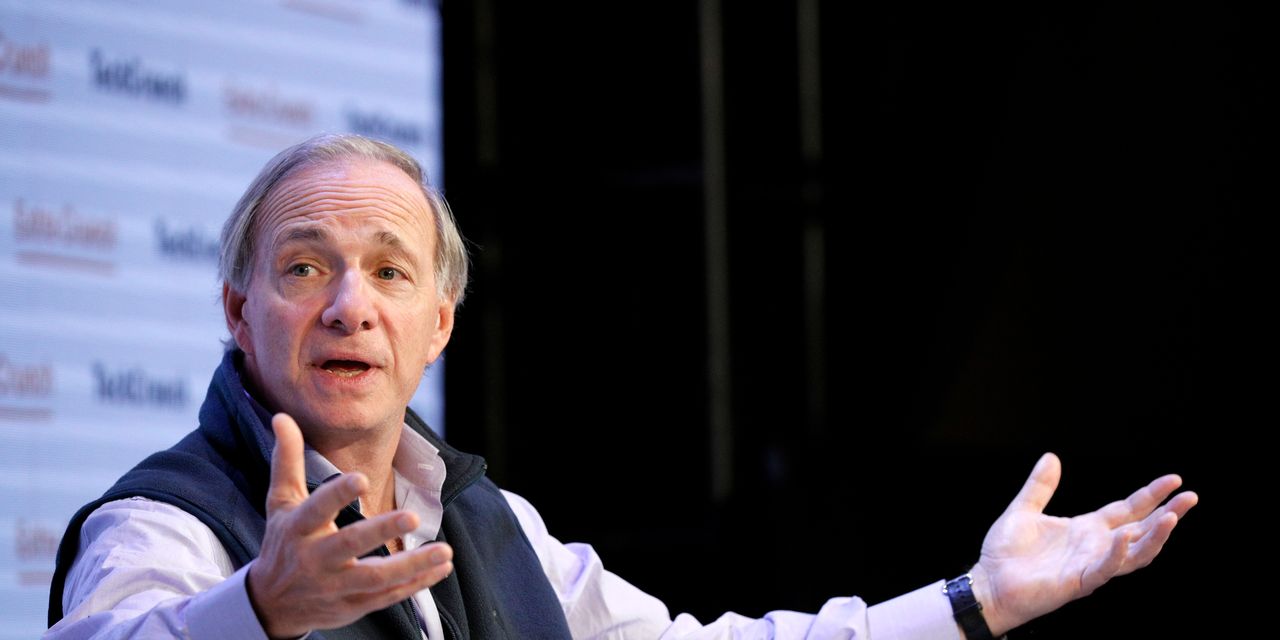“‘Increasing the debt limit the way Congress and presidents have repeatedly done, and most likely will do this time around, will mean there will be no meaningful limit on the debt. This will eventually lead to a disastrous financial collapse.‘ ”
That’s billionaire investor and Bridgewater Associates founder Ray Dalio, warning via a post on LinkedIn that while the U.S. government is likely to avoid a first-ever debt default, a lack of effective restraint on spending spells big trouble ahead.
Dalio wrote that he doesn’t expect the battle between the Biden administration and congressional Republicans over a debt-limit increase to lead to a default — or if it does, it will be resolved quickly. But any agreement is unlikely to deal with the “big issues” in a substantive way, and will instead likely tweak things in ways that won’t matter much, making no real commitment to cutting the deficit in future years.
See: Debt-ceiling standoff: Here’s what could go into a bipartisan deal
House Speaker Keven McCarthy, R-Calif., told reporters Thursday that he thinks an eventual bill to raise the borrowing limit needs to be on the House floor next week and that he can “see the path.” McCarthy and President Joe Biden have designated representatives to negotiate a deal while Biden is attending a G-7 meeting in Japan.
Both have said they are confident a deal will be reached before the government is unable to pay its bills, which could come as early as June 1. Debt-ceiling worries have made for volatile trading in short-term Treasury bills that would be affected by a potential default, but concerns have yet to exert lasting pressure on the stock market.
The Dow Jones Industrial Average
DJIA,
rose 115.14 points, or 0.3%, on Thursday, while the S&P 500
SPX,
rallied 0.9% to close at a nearly nine-month high.
Read: ‘Doomsday machine’: Here’s what could happen if the debt ceiling is breached
Dalio argues that continuing along the same path isn’t sustainable “because increasing debt assets and liabilities faster than income eventually makes it impossible to simultaneously pay lender-creditors a high enough real (i.e., inflation-adjusted) interest rate to have them hold the debt assets without having that real interest rate too high for the borrower-debtors to be able to service their debts.”
When the amount of debt sold is greater than what debt buyers want to absorb, central banks must decide whether to let interest rates rise to balance the supply and demand, which will crush debtors and the economy, or print money to buy the debt. The latter option is inflationary and encourages debtholders to sell, making the debt imbalance worse.
“In either case that creates a debt crisis that is like the runs on the banks that we have been seeing, but with government bonds being what is sold and the run on the bank being a run on the central bank,” Dalio wrote.
At the same time. not increasing the debt limit will lead to default and to cutbacks on basics for those who can’t afford cutbacks, causing financial havoc and social upheaval, Dalio said.
An agreement to raise the limit would ideally be accompanied by an agreement between Biden and McCarthy that overcomes the objections of the “more extreme” members of both parties, Dalio wrote, who either don’t want to lift the debt ceiling or aren’t willing to compromise on a long-term budget approach.
Read the full article here













